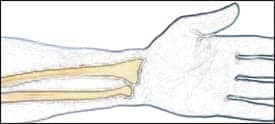Shepherd Center launches Pursuing Possible: The Campaign for Shepherd Center. The $350 million campaign will fund capital and programmatic projects to benefit patients and families experiencing spinal cord injury, brain injury, stroke, chronic pain, multiple sclerosis, and other neurological illnesses and injuries.
Shepherd Center provides nationally ranked care to nearly 900 inpatients and 7,100 outpatients annually through its continuum of care, which spans an intensive care unit, inpatient rehabilitation, post-acute day rehabilitation programs, and outpatient therapy and clinics to meet patients’ ongoing needs.
“When we considered how Shepherd Center needed to grow to fully meet the needs of our patients, their families, our staff, and the community, it was clear that we should expand access to our services,” said Sarah Morrison, PT, MBA, MHA, CEO of Shepherd Center. “And we also want to provide a world-class experience with an unparalleled level of recovery for our patients and families as they navigate rehabilitation and achieve their goals for life beyond injury and illness. This expansion will transform the way we provide care to our patients.”
Shepherd Center has limited capacity in inpatient and outpatient programs. Every year, there are patients for whom an appropriate bed is not available or who must wait for the services they need. An $80 million grant from The Marcus Foundation will enable Shepherd Center to pursue projects and programs that will increase patient access, including adding 48 beds, enabling the hospital to serve hundreds more patients per year on an inpatient basis. Shepherd Center will also expand its outpatient programs, increasing its capacity to provide access to Shepherd Center’s services, including enhanced technology, to patients and families at the right time and place.
The grant also supports a significant investment in innovation with the launch of the Marcus Center for Advanced Rehabilitation, which will include the addition of a 30,000-square-foot Innovation Institute, as well as a dedicated clinical lab to test new treatment ideas, an accelerator fund to support research and development, and the implementation of artificial intelligence and predictive analytics to drive patient outcomes and inform treatment methods for generations to come.
“Billi and I have a long-standing relationship with the Shepherd Center and Alana Shepherd,” said Bernie Marcus, Atlanta philanthropist and Home Depot co-founder. “More than 30 years ago, we made our first commitment to supporting the expansion of Shepherd Center to meet the needs of those patients and families who benefit from its extraordinary care. Through the years, we’ve seen our continued participation result in both the expansion of services and the discovery of innovative treatments and technologies that have saved and changed so many lives. We believe in Shepherd.”
A $50 million capital grant from the Arthur M. Blank Family Foundation will allow Shepherd Center to more than double its housing capacity, adding 160 new accessible units so that families and day program patients can stay in donor-funded housing for the full duration of their loved one’s stay. The new housing tower, named the Arthur M. Blank Family Residences, will allow families to stay close during rehabilitation and ease the financial burden of finding lodging elsewhere.
“There’s no question that the level of care patients receive here is remarkable, but they also need the love, care, and nourishment of their families,” said Arthur Blank, chairman of the Arthur M. Blank Family Foundation and long-time supporter of Shepherd Center. “Our family foundation is honored to support Shepherd Center in helping more families heal together. We hope that having a safe, accessible place to call home here in Atlanta while they are away from their own homes will help lift the incredible burden of these types of trauma in some small way so that families and patients can focus on their healing and each other at a time when that is the most important and most needed.”
More than half of the patients come from outside of Georgia, and families are often apprehensive about sending their loved one far from home for treatment after a traumatic injury. Families and loved ones are an essential part of the rehabilitation journey. Their presence allows them to provide comfort and encouragement to their loved one while also undergoing family training in preparation for returning to their communities. Yet, due to space constraints and availability, Shepherd Center can only provide housing for families for 30 days, while the average length of stay for patients is nearly twice that. Currently, Shepherd Center has 84 units on campus with an additional 36 units nearby.
Pursuing Possible: The Campaign for Shepherd Center is slated to continue through 2025 – the same year as Shepherd Center’s 50th anniversary.
“When we founded Shepherd Center in 1975, it was because we had tremendous community support that we were able to provide care with unmatched expertise and compassion for patients who desperately needed it,” said Alana Shepherd, co-founder of Shepherd Center. “47 years later, the need has grown substantially, and so must we. We’re eternally grateful for those joining us again or for the very first time to support our growth.”
[Source(s): Shepherd Center, PR Newswire]




